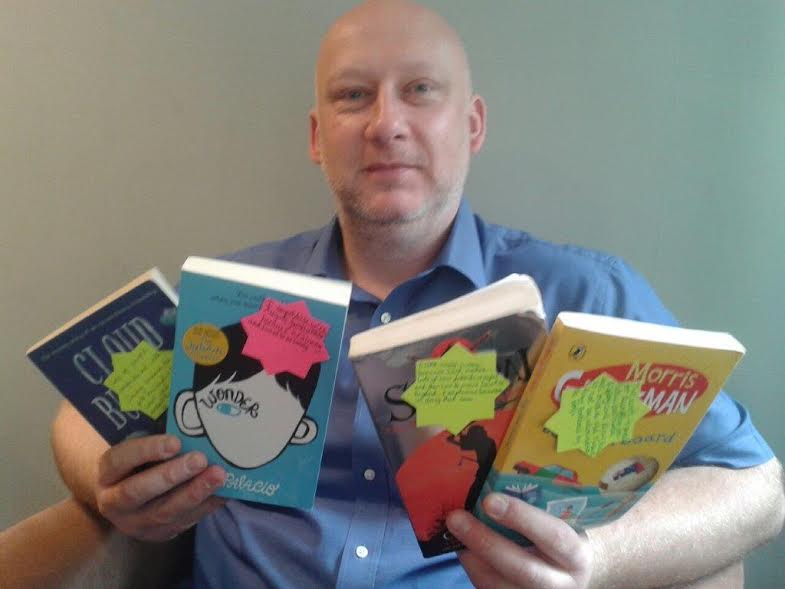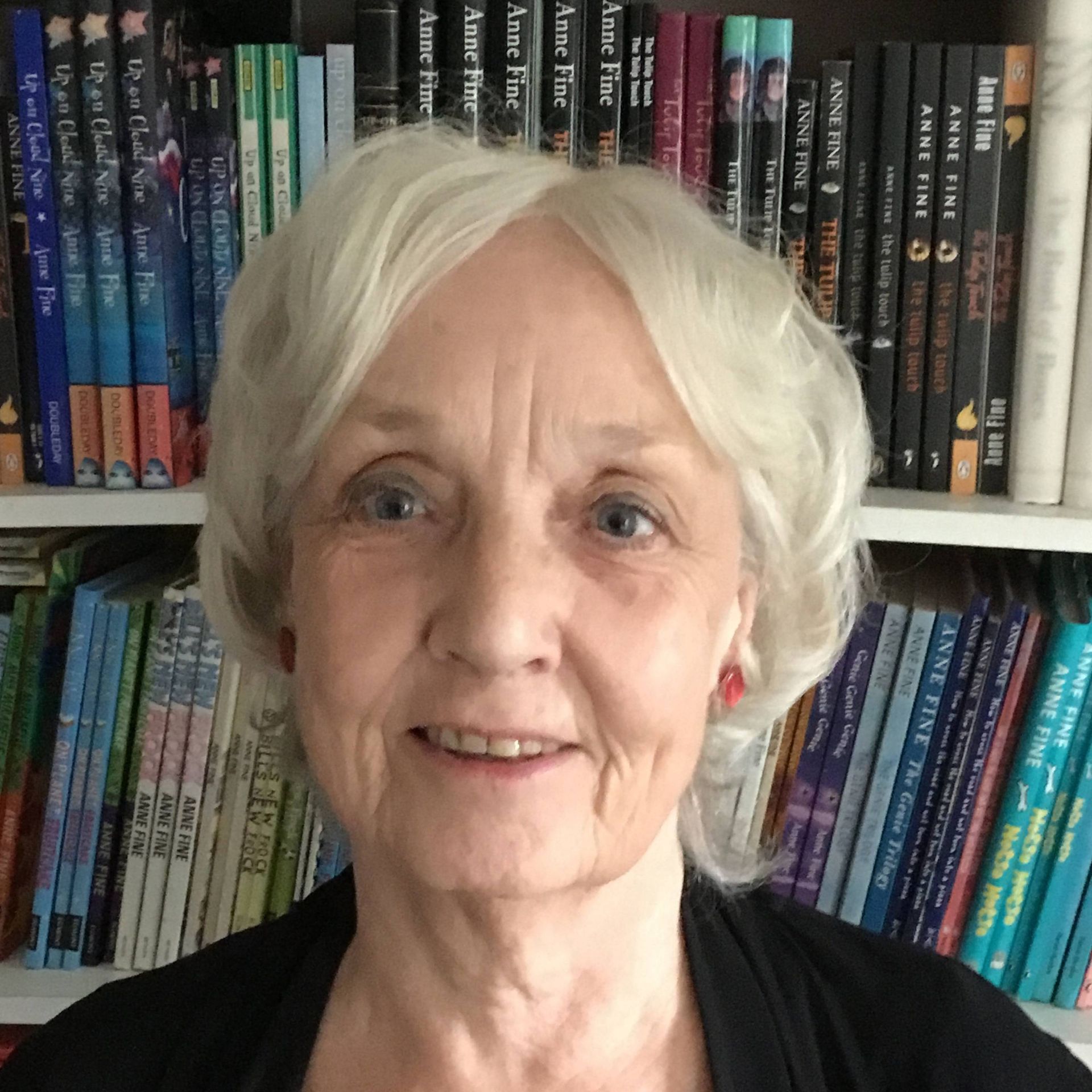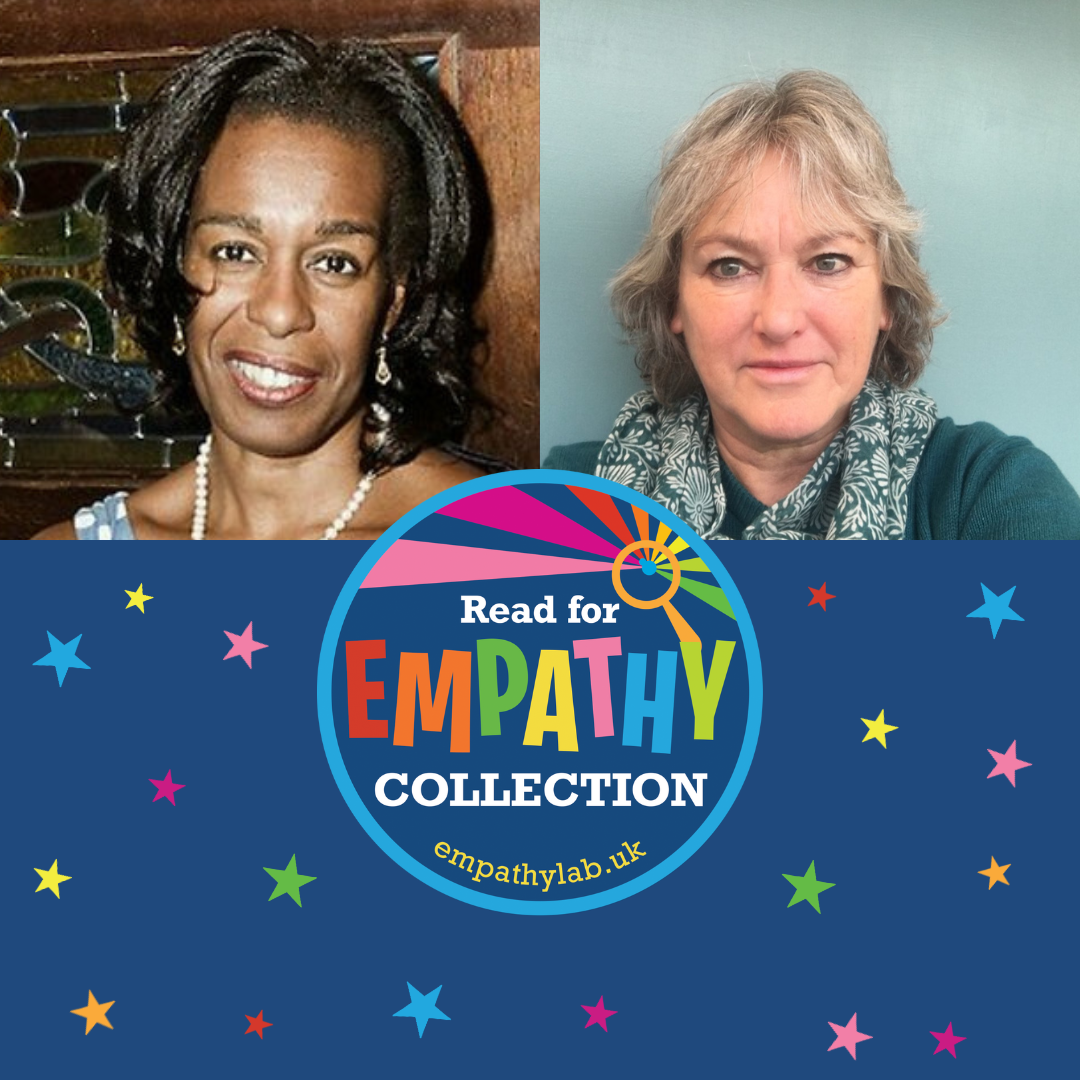EmpathyLab at Moorlands Primary Academy
- By EmpathyLab
- •
- 31 Jan, 2017
- •
Here Jon Biddle, an inspirational teacher at Moorlands Primary Academy in Great Yarmouth tells us about his class’s work with EmpathyLab

Empathy Lab
We are extremely excited to be
one of only a handful of schools invited to trial a new project called Empathy
Lab, which is all about how to develop children's empathy skills through books
and stories. We will be taking part in different activities over the next few
months, such as Empathy Detectives and Empathy Storykits, and then feeding back
to the organisers in the summer. The plan is for the project to be launched in
schools across the country in September.
Romy, Ethan and Gracie from Year 5 explain a little bit more about what empathy
in books means to them.
Romy "Empathy is all about putting your self in other people's shoes, you
have to think about how others might be feeling. For example, if a character is
lonely in a book, it will make you think about what it feels like to be
lonely."
Ethan "I've just read a book called How To Fly With Broken Wings by Jane
Elson. There were loads of characters in the story that I felt empathy for,
such as Willem, Sasha, Finn and Archie. Although Finn caused a lot of problems,
we found out towards the end of the story why he behaved like he did. He was
bad because of what happened to him, but he still had feelings."
Gracie "I've finished One Dog And His Boy where the main character is very
lonely. When I'd finished the book, I thought a lot about it. One day when I
was in the playground I saw a girl who looked really lonely, she was sitting
down on her own, so I went and played with her. The book caused me to change my
behaviour."
Ethan "I didn't really know what empathy was until we talked about it.
It's weird but when I had it explained, I realised that I always try and show
empathy to people. I now really look for empathy in books."
Romy "I find empathy in books really interesting, as I didn't used to
think how people were feeling, I just used to read. Now I feel a lot more
imaginative, it gives the story a lot more background about what might have
happened and why."
Ethan "Thinking about it when I read makes me want to read more, because I
get so much more involved in the story."
Gracie "I don't always think about what might happen next, but I always
think about how a character might be feeling after a story ends. When I read
Not As We Know It, I thought loads about the character of Jamie. His brother
was probably going to die and I realised how hard it must have been for him to
know that. It's never happened to me but I understood it through the
story."
Ethan "There are loads of books about empathy. The Ranger's Apprentice has
a character who keeps getting told that he isn't good enough. That must have
been awful for him."
Romy "I now want to go back and read books like Matilda again, because I
want to think more about the feelings of the characters in the story."
Gracie "When I read His Dark Materials, I empathised the most with Lyra's
mother. That sounds strange because she's the bad character in the books, but
she's only that way because she couldn't see her daughter. All she wanted to do
was protect her."
Romy "I always empathise with Harry Potter. In the first book he has no
friends and his aunt and uncle only care about his cousin. He must have found
that really hard."
Ethan "There's lots of lonely and frightened people in the Harry Potter
books. I think that's why so many people love them."
Romy "If other people, who maybe aren't so nice, read some of these books,
maybe that would change the way that they acted. They would think more and
maybe understand more. I think they should all read more. Perhaps schools
should discuss empathy in books every week because it would help people so
much."
Gracie "With our class, because we read a lot and always talk about books,
we're all learning about empathy and getting on with each other every day.
Should other classes choose to read books about empathy such as The Graveyard
Book? I think they should."
Ethan "There are lots of books about making friends. Children need to know
that it can be really hard if you're different in any way, like the boy in the
wheelchair in How To Fly With Broken Wings. He just wanted to fit in with the
others. He nearly died because of other people. But they didn't really want
that to happen, they just didn't understand."
Gracie "If there's destruction all around you, you don't just see it, you
feel it too. When the estate got smashed up I felt so sad because I know people
who live in a world like that."
Romy "Can you enjoy books so much without understanding empathy? I don't
think you can because it won't mean as much to you. It's just reading then. You
don't just read the book, you have to stop and think and then go back to the
reading. That's how things make sense to me."
Ethan "If you're younger you can still understand empathy. Stick Man,
Hugless Douglas, The Day The Crayons Quit has got loads of perspectives and
each colour is misunderstood. When orange and yellow argue about being the sun,
that's how some people argue about silly things."
Gracie "I never thought I would care how Stick Man felt but now I really
do. He's not just a stick, he has feelings."
Ethan "If you learn about empathy and read books that include it, it helps
you get more from your reading. When I feel empathy in stories, I slow down,
sometimes stop and think so much more. I turn the pages more slowly."
Gracie "Sometimes I empathise with more than one character in a book. It's
really hard when characters aren't treated fairly."
Romy "When characters are separated from people they love, that always
makes me think. I've had to move away from my friends and books make me feel
better, like I'm not alone."
Ethan "Books that make you feel empathy can just change the way you are.
They really actually change you."

Why has the sheer importance of empathy come to the fore in recent years? Why do we care so much about a concept that had seemed to be left to itself for so long?
Perhaps because there has been so much change and upheaval for our young people in recent years, leaving so many isolated from what we might term ‘real’ contact with others. Lockdown was for many a disaster. The proliferation of phones hasn’t helped. Financially stretched families are often starved of time that can be spent in casual, easy, contact with one another.
So gaining an understanding of others from fiction has become more and more important. Children have always learned from the books and stories they are offered. From the fairy tales, children who lived in an elemental world without luxuries or social safety nets learned the virtues that were so necessary back then to survival: courage, resourcefulness, endurance, quick wits, kindness to strangers.
Our own young people live more tightly under separate roofs, and we have seen the language of books change accordingly - to Mum, the babysitter, playgroup, park, baby sister, Dad’s girlfriend, the bully, happy, worried, sad. It’s the language of relationships and emotions now, and understanding and compassion liberate. They have become the twenty-first century equivalent of Hansel and Gretel’s pebbles gleaming in the moonlight to show the way out of the dark forest.
Frank Flanagan once said good writers “structure, explain and evaluate the experience of childhood and empower the child to come to terms with it. They enable the child to lead a full life."
How? Partly by quite unconsciously increasing self-knowledge and self-awareness. A young reader can’t help but see characters in books unconsciously as if in a mirror. "I'm not like that." "I worry about that too." "I would have been braver”, “slower to catch on”, “tempted to be more mean”. And when this sense comes of no longer being the only one in the world to have this problem, or to feel that way, the child not only comes to realise that they are not alone, but also to gather insights into how other people deal with the same worries or tackle the same problems. In short, they learn, vicariously, how other people tick.
We have so many young people who, it seems, sometimes as a result of their upbringing, often simply by nature, have somehow failed to acquire the tools to begin to think about their own situation. Through fiction they can often begin, safely, to explore the more subtle aspects of life around them - an insight into someone else's life. A child can share desk space with someone else all year and yet learn less about them than about a character in one short book that’s read to them at night. I try to show this in my novel On the Wall , where, over the school year, Finley’s quite exceptional gift for tranquillity and self-acceptance in an anxiety-inducing world causes one fellow pupil after another to look more deeply into themselves, and learn how to rebalance their own way of thinking to become, in the process, calmer, happier, or more accepting.
We all want, for our young people, peace of mind. An excellent start is to explore Lauren Child's wonderful 'Staring into Space' project: https://staringintospace.me/
Then, steep them in fiction. And where better to find the
best than at the EmpathyLab itself?
You can purchase Anne's book, On the Wall,
here

The collection consists of 65 books for 3-16 year olds, each chosen for its unique contribution in building young people’s empathy.
The primary collection for 3-11 year has 40 books; the secondary collection features 25 books for 12-16 year olds.

